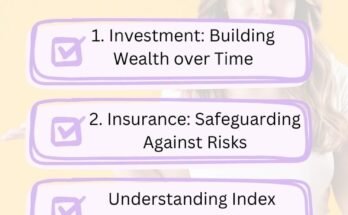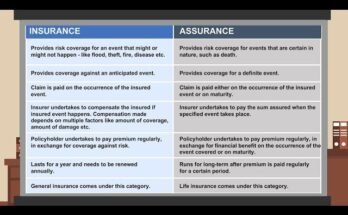Insurance may be denied due to factors like high-risk conditions, pre-existing health issues, incomplete applications, or a lack of necessary documentation. Insurers assess risk based on age, medical history, lifestyle choices, & even location. To improve insurability, individuals can seek specialized coverage options, work to mitigate risk factors, maintain a healthier lifestyle, or consult an insurance broker for tailored solutions. Addressing these issues proactively enhances the chances of obtaining coverage while understanding the specifics behind rejections can empower individuals to navigate their options effectively.
Why Won’t Anyone Insure Me? Understanding Insurance Rejections & Solutions. Wondering Why Won’t Anyone Insure Me? Explore common reasons for insurance rejections & discover practical solutions to get covered today!

Understanding Insurance Rejections
Experiences surrounding denial of insurance coverage can vary widely, often leading individuals into confusion & frustration.
When navigating complexities of insurance rejections, many aren’t clear on specific reasons for their situation. Understanding underlying factors contributing to such denials plays an essential role in addressing concerns.
Each individual’s insurance needs differ, hence personalized situations require tailored understanding & reaction. Identifying common reasons can shed light on issues, enabling proactive steps towards securing necessary coverage.
Reasons Why Insurance Companies Reject Applications
Numerous reasons exist behind insurance application rejections. Getting insight into these can help applicants mitigate issues before applying.
First, an applicant’s credit history frequently affects decisions. A poor credit score raises red flags, causing insurers to perceive higher risk. And another thing, an applicant’s previous insurance claims history plays a critical role. Extensive claims can make insurance companies wary.
Lastly, some applicants’ health conditions or risky lifestyles contribute significantly. Pre-existing conditions may hinder opportunities for individuals looking for medical coverage, while a dangerous occupation raises concern for providers.
Common Factors Leading to Denial
- Prior insurance claims history
- Pre-existing health conditions
- Low credit scores
- Incomplete or inaccurate application information
- Age-related factors
The Impact of Credit History on Insurance Approvals
Your credit history serves as an important determinant for insurance approval. Insurers believe a strong credit score correlates with responsible behavior, which translates into lower risk.
A low credit rating may not only lead to higher premiums but can also cause outright denials. Many applicants experience denial simply due to unfavorable credit scores.
Understanding relationship between credit scores & insurance applications allows applicants to manage their financial profile effectively.
How Credit Scores Affect Premiums
| Credit Score Range | Impact on Premiums |
|---|---|
| 300-579 | High Risk (higher premiums) |
| 580-669 | Moderate Risk (medium premiums) |
| 670-739 | Low Risk (lower premiums) |
| 740+ | Very Low Risk (lowest premiums) |
Pre-existing Conditions & Their Role in Denials
Individuals with pre-existing conditions face unique challenges while seeking health insurance coverage. Many insurers impose waiting periods or outright exclusions based on these factors.
Examples of common pre-existing conditions include diabetes, heart disease, & asthma. Insurers may hesitate due to potential frequent claims arising from treatments.
More valuable alternatives exist for individuals facing denials; becoming informed about available plans designed for pre-existing conditions can empower future applications.
Alternatives for Individuals with Pre-existing Conditions
- Short-term health insurance
- Guaranteed issue plans
- Group insurance plans
- High-risk pools
- Health sharing ministries
Navigating Application Errors
Many applicants encounter problems due to mistakes within their applications. Inaccuracies or incomplete information often lead to delays or instant denials.
Ensuring accurate & comprehensive applications can minimize risks associated with oversight. Double-checking applications prior insurance submission boosts chances for approval.
Working with knowledgeable agents ensures clarity & accuracy during this crucial phase. They can help highlight potential issues & guide through corrective measures.
Common Mistakes in Applications
| Common Mistake | Potential Consequence |
|---|---|
| Incomplete health history | Application denial |
| Errors in contact information | Delayed responses from insurers |
| Incorrect social security number | Application invalidation |
Understanding Age-related Factors
Age frequently represents a critical factor in insurance decisions. Younger applicants might encounter different challenges compared with those seeking coverage later in life.
Older applicants often face higher premiums. Insurers may classify them as higher risk based on age-related health concerns.
Young adults, on the other hand, may struggle with obtaining coverage due to lack of established credit standing or insufficient work history.
Age Categories & Insurance Denials
- Individuals under 25: Limited options
- Individuals aged 25-40: Moderate premiums, more options
- Individuals over 40: Higher premiums, potential denials
- Individuals over 60: Increased scrutiny on health history
- Older adults: Specific policies may limit coverage based on age
Frequent Coverage Gaps & Their Effects
Even after an application receives approval, potential gaps in coverage may leave individuals vulnerable. Documenting all acceptable scenarios can foster better understanding, ensuring clients select comprehensive plans.
Many individuals lack knowledge regarding exclusions hidden within policy details. Thus, recognizing these gaps can make a significant difference in future claims.
Staying informed about various policies’ specifics streamlines decision-making, affording individuals peace regarding their insurance coverage.
Common Coverage Gaps to Consider
| Type of Coverage Gap | Possible Impact |
|---|---|
| Emergency room visits | Unexpected large expenses |
| Out-of-network care | High out-of-pocket costs |
| Prescription medications | Increased financial burden |
Addressing Lifestyle Factors
An individual’s lifestyle contributes substantially toward insurance rejections. Insurers often assess risks based on habit profiles, leading to potential denials.
For instance, engaging in high-risk activities, such as extreme sports or having a history of substance abuse, increases likelihood of rejection.
Applicants might consider implementing lifestyle changes to enhance insurability. Healthy living practices contribute positively not only toward health but also availability of coverage options.
Adopting Healthier Lifestyles
- Regular physical activity
- Balanced diet
- Avoiding tobacco & excessive alcohol
- Managing stress levels
- Routine health check-ups
Exploring Solutions for Rejected Applications
When an application receives denial, exploring available pathways can enable individuals in addressing insurance challenges. Many people find themselves at a dead-end, but options remain.
First, understanding rights regarding denial can foster an informed perspective. Applicants have the right to request explanations from insurers.
And another thing, seeking alternatives, such as specialty insurers targeting high-risk individuals or reconsideration through reapplying, often yields productive results.
Potential Routes Post-Denial
- Requesting further information from insurer
- Exploring high-risk insurance companies
- Consulting a broker for personalized options
- Utilizing state or national plans
- Re-assessing health status
Personal Insight on Insurance Rejections
Having personally experienced an insurance denial, it felt disheartening & frustrating. Addressing my insurance needs became even more complicated, thus understanding broader issues surrounding insurance coverages became invaluable.
Realizing how easily applications could end up rejected due to reasons I previously overlooked illuminated significant gaps in my own knowledge.
This experience encouraged me towards acquiring more comprehensive information about various insurance plans & what factors contribute most to risks deemed unworthy by providers.
Faced with rejections may feel daunting, recognizing underlying factors can transform responses into success.

Conclusion
In summary, dealing with insurance rejections can be frustrating. Understanding why these rejections happen is key to finding solutions. Factors like your health history, location, or type of coverage can all play a role. Don’t lose hope! There are options out there, including specialized policies & different insurers who might be more open to your situation. Remember, being proactive by improving your risk factors & seeking guidance from insurance professionals can make a big difference. Stay informed, & you’ll find a path to getting the coverage you need.



